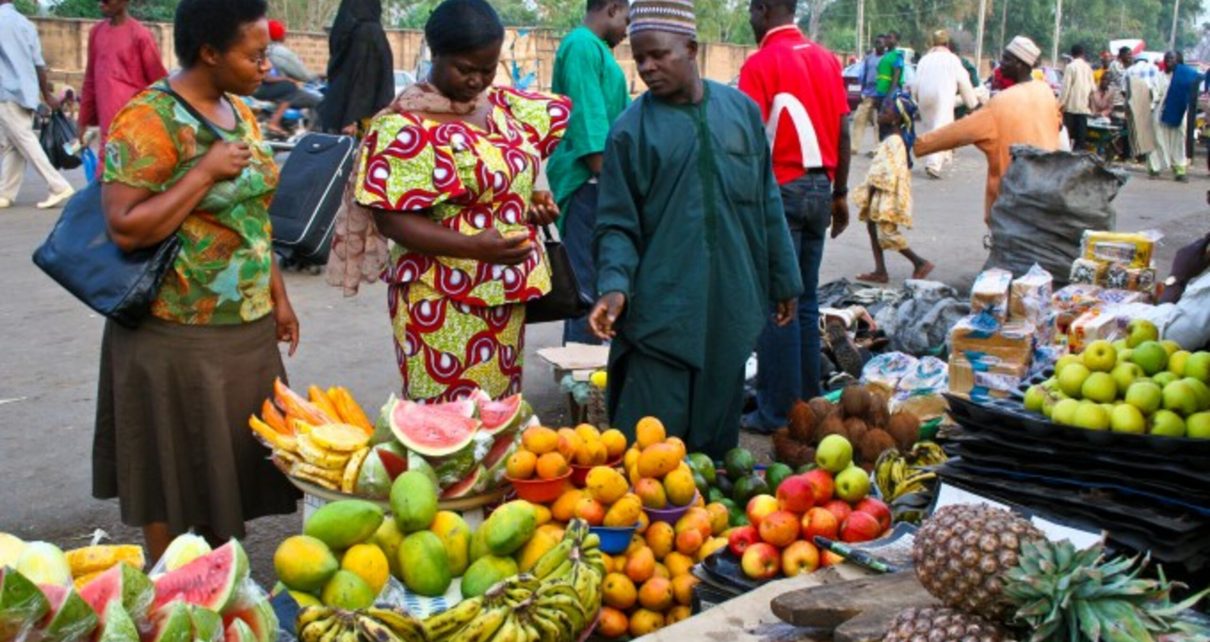The National Bureau of Statistics (NBS) has revealed a striking surge in Nigeria’s headline inflation rate, which has vaulted to 24.08% in July 2023. This alarming revelation was underscored by the NBS Consumer Price Index (CPI) and Inflation Report for July, disclosed in Abuja on Tuesday.
The report spotlights the primary catalysts of this escalation: food and non-alcoholic beverages, which ascended by 12.47%, and housing, water, electricity, gas, and other fuel, registering a 4.03% increase. Additional contributors to the upward trajectory were clothing and footwear at 1.84%, transport at 1.57%, furnishings, household equipment, and maintenance at 1.21%, education at 0.97%, and health at 0.72%.
Furthermore, the analysis delineates the year-on-year headline inflation rate for July 2023, surging by 4.44% compared to the previous year, standing at 19.64%.
The data underscores the discernible elevation in the year-on-year headline inflation rate, pointing to an upward momentum in July 2023 relative to the same period in 2022.
On a month-on-month basis, the report underscores that July 2023 witnessed a headline inflation rate surge of 2.89%, signifying a notable 0.76% increase compared to the rate recorded in June 2023 at 2.13%.
These findings highlight the tangible impact of escalating food and housing costs on Nigeria’s inflation landscape. The consumer price index, a crucial indicator of economic well-being, underscores the need for comprehensive strategies to address these pressing concerns and stabilize the nation’s economic trajectory.
The report delves further into the intricate dynamics, highlighting that the percentage change in the average CPI for the 12 months ending July 2023 was 21.92%. This figure reflects a significant 5.17% increase when compared to the 16.75% recorded in July 2022.
Food inflation, a closely watched aspect, surged to 26.98% on a year-on-year basis for July 2023, marking a notable 4.97% increase from the rate of 22.02% in July 2022. The report attributes this surge in food inflation to price hikes in oil and fats, bread and cereals, fish, potatoes, yams, other tubers, fruits, meat, vegetables, milk, cheese, and eggs.
Examining the month-on-month basis, the food inflation rate for July 2023 reached 3.45%, marking a 1.06% rise relative to June 2023’s rate of 2.40%.
Additionally, the report highlights the core inflation rate, excluding volatile agricultural produce, at 20.47% on a year-on-year basis for July, reflecting a substantial 4.41% increase compared to the 16.06% recorded in July 2022. The rise was particularly pronounced in items such as passenger transport via air and road, gas, vehicle spare parts, medical services, and maintenance and repair of personal transport.
Shifting the focus to a month-on-month basis, the core inflation rate for July 2023 stood at 2.11%, reflecting a 0.34% increase compared to June 2023’s rate of 1.77%.
Summing up, the average 12-month annual inflation rate for the period ending July 2023 was 18.84%, marking a substantial 4.31% increase in comparison to the 14.53% recorded in July 2022.
The report then delves into regional profiles, with urban and rural inflation rates. On a year-on-year basis, the urban inflation rate for July stood at 25.83%, indicating a noteworthy increase of 5.74% compared to the 20.09% recorded in July 2022. Similarly, the rural inflation rate for July on a year-on-year basis was registered at 22.49%, indicating a 3.26% rise compared to the 19.22% documented in July 2022.
The regional analysis highlights divergent inflation rates across various states. Kogi, Lagos, and Ondo posted the highest year-on-year inflation rates for July, whereas Borno, Jigawa, and Sokoto exhibited the slowest increases.


